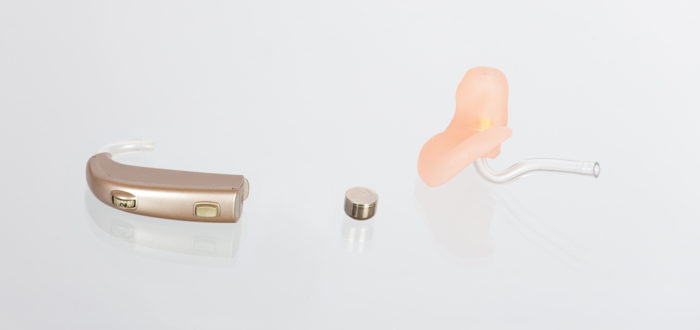It’s estimated that in 2019, 7.1% of adults in the US over the age of 45 were using a hearing aid. Hearing aids can be a life-changing investment for the millions of Americans who experience impaired hearing. Using hearing aids can help retain quality of life, and offers vital health benefits also.
If you’re one of the millions of Americans who wear hearing aids, you’re probably very familiar with how important these little devices can be. It’s important to ensure that your hearing aids are functioning when you need them, and one of the more crucial elements to any hearing aid device will be the battery.
Today, we’re looking at some of the more commonly asked questions about hearing aid batteries.
Frequently Asked Questions about Hearing Aid Batteries
If you use a hearing aid, then you know the importance of hearing aid batteries. They are crucial to ensuring that your hearing aid is performing at its best. In this article, we are going to discuss some important questions regarding hearing aid batteries. Let’s get into it.
What is the Average Lifespan of Hearing Aid Batteries?
Normal hearing aid batteries come in four standard sizes. They can last anywhere from 3 to 20 days. It all depends on the kind of device that you are using, and how often you are using it. If you are using your hearing aid for most of the day, then typically your battery will last 7 days at most.
How Will I Know My Hearing Aid Battery Needs Changing?
There are two indicators that mean that you need to replace the battery of your hearing aid. These include:
- The sound becomes abnormal or distorted, and you find yourself having to turn up the volume of your device more than you usually do. It is a sign that your hearing aid battery might be at the end of its life.
- Most hearing aid devices have some sort of low battery indicator. If that indicator is triggered, then it is best to change the battery of your hearing aid.
What is the Purpose of the Colored Plastic Seal on your Hearing Aid Battery?
The colored protective seal that you will find on almost all new hearing aid batteries serves two purposes:
- It is a universal color code indicating which type of hearing aid battery it is. There are four standard colors: Yellow, orange, brown and blue.
- It prevents your hearing aid battery from discharging power.
The moment you remove this seal, your hearing aid battery will begin to discharge power. So make sure that you only remove the protective seal when you are ready to use the battery.
How Can I Maximize My Hearing Aid Batteries Lifespan?
The way you store your hearing aid battery has a huge impact on its life span. Here are a few things to keep in mind:
- When you’re not using your hearing aid, make sure to take the lid of the battery cover off. This helps prevent moisture from building up inside. A build up of moisture could lead to your battery corroding.
- If you are not planning on using your hearing aid for a long period of time, make sure to remove the batteries from it.
- Do not store your hearing aid batteries in extreme conditions. Store them in a cool and dry place when not in use.
Should I Keep My Hearing Aid Batteries away from Metal Objects?
Yes. Try to keep them away from any other metal objects. They will discharge power faster if they come into contact with a metallic object. Remember this when you’re storing your backup hearing aid batteries. Avoid keeping them in your wallet or pockets where they may be more likely to come in contact with metal objects, such as coins.
Need Help? Have a Question? Contact Us Today!
Do you have any more questions about your hearing aid batteries? Contact the team at Regional Hearing and Balance Center today. Call us at 208-497-3596 or click here to book a complimentary hearing assessment.


Recent Comments